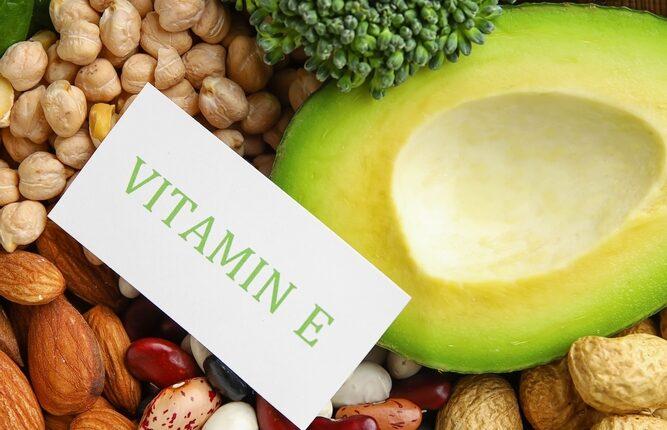Discover the helpful benefits of nutraceuticals in helping men
Infertility is a term defined as not being able to conceive even after one year of having regular unprotected sexual intercourse.1 Male infertility refers to inability of a male to impregnate a fertile female.1
Globally, around 187 million couples or one out of every six couples of reproductive age suffer from infertility with male factor being the main or contributing factor in approximately half of the couples.1 This problem can cause significant psychological, social and emotional distress in couples as well as their families. There are often male and female causes that co-exist so it is imperative that both partners are evaluated for infertility.2
Causes
Infertility in men is mainly related to the following issues:3
- Abnormalities related to sperm count:
- Azoospermia: Absence of sperm in seminal plasma.
- Oligozoospermia: Low sperm count < 15 million sperms/mL.
- Poor sperm motility (Asthenospermia).
- Abnormal sperm morphology (Teratospermia).
Many different medical conditions, lifestyle and environmental factors can contribute to male fertility problems. Therefore there is a need for thorough evaluation of the patients to recognise treatable or reversible lifestyle causes or medical conditions.2
Few medical conditions, lifestyle and environmental factors contributing to male infertility include:1-3
- PHYSICAL PROBLEMS with the testicles such as epididymal lesions, spermatocele, undescended testes and large varicocele.
- BLOCKAGES in the ducts that carry sperm.
- SEXUAL DYSFUNCTION – Premature ejaculation and erectile dysfunction.
- UROGENITAL INFECTION – Gonococci, chlamydia, syphilis and tuberculosis.
- HORMONE PROBLEMS – Hyperthyroidism and diabetes.
- A history of HIGH FEVERS or MUMPS.
- GENETIC DISORDERS – Mutations of the cystic fibrosis transmembrane conductance regulator (CFTR) gene, primary ciliary dyskinesia, Kallmann syndrome, Klinefelter’s syndrome and Young syndrome.
- MALIGNANCIES – Testicular tumors and adrenal tumors.
- LIFESTYLE OR ENVIRONMENTAL FACTORS – Smoking, excess alcohol, insecticides, fungicides, pesticides and heat exposure as in cases of occupation, such as truck drivers, welders, or firefighters.
- MEDICATIONS OR DRUGS – Cannabinoids, opioids, psychotropic drugs, chronic glucocorticoid therapy, antiandrogens, ketoconazole and cimetidine.
| RISK FACTORS | ||
|---|---|---|
| Local Conditions | Environmental / Lifestyle Factors | Systemic Conditions |
| Varicocele | Smoking | Diabetes |
| Genitournary infection | Pesticides | Cancer |
| Epididymoorchitis | Radiation | Medications |
| Testicular trauma | Excessive use of mobile phones | Sysemic infections |
Role of oxidative stress in male infertility4,5 Oxidative stress (OS) has adverse effects on both structure and function of the sperm leading to reduced sperm motility, sperm DNA damage and genetic diseases.4 One of the proposed mechanisms for infertility is OS and reactive oxygen species (ROS).4,5 Normal levels of ROS are needed for sperm physiology, but increased levels of ROS can negatively impact sperm quality (figure 2). The sperm damage due to oxidative stress is a significant contributing factor in 30 to 80 percent of all cases of male infertility. ROS generation can be worsened by environmental, infectious, and lifestyle factors. Such as, exposure to cigarette smoke generates high levels of OS that directly increases seminal leukocyte concentrations and seminal ROS generation, and decreasing seminal levels of the antioxidant enzyme superoxide dismutase (SOD). Smoking has been linked with reduced sperm concentration, motility, and altered morphology.5 Excessive alcohol intake is also associated with seminal fluid abnormalities. Industrial exposure to heavy metals like lead, cadmium, iron, copper and exposure to pesticides and pollution has been linked to altered sperm function and increased DNA damage.4
Oxidative stress (OS) has a major role to play in the etiology of male infertility. Therefore, using antioxidants to fight against OS in the treatment of infertility is a likely option.4-6
Smoking has been linked with reduced sperm concentration, motility, and altered morphology.5 Excessive alcohol intake is also associated with seminal fluid abnormalities. Industrial exposure to heavy metals like lead, cadmium, iron, copper and exposure to pesticides and pollution has been linked to altered sperm function and increased DNA damage.4

Role of nutraceuticals in male infertility
Nutraceuticals are products derived from food sources that can provide both nutrition and medicinal benefits. These therapeutic nutraceuticals have become popular due to their antioxidant properties and widespread availability. In addition, numerous studies have documented the beneficial effects of oral antioxidants, such as alpha-lipoic acid, zinc, folate, coenzyme Q10, selenium, and vitamins, on sperm parameters.4-6 It has also been noted that the deficiency of some nutrients and restricted nutrient intake may impair spermatogenesis (development of the sperm cells within the male reproductive organs). Selective micronutrients have a good impact on sperm health and fertilising capacity. Table below depicts main nutrients that are beneficial for improving sperm quality.7

Supplements improving sperm quality7
| Supplement | Description | Metabolic effect |
|---|---|---|
| Vitamin E | Antioxidant | Reduces levels of malondialdehyde levels that cause toxic stress in spermatozoa and improves sperm motility. |
| Selenium | Essential trace element | Regulates spermiogenesis, promoting motility, increasing the number and quality of the spermatozoa. |
| N-acetyl-cysteine | Aminoacid and antioxidant | Reduces sperm viscosity improving motility as well as sperm quality. |
| L-carnitine | The biologically active form of carnitine, a small amino acid derivative | Improves sperm quality and increases mitochondrial fatty-acid oxidation reducing cell death in the testes. |
| L-arginine | Conditionally essential amino acid | Increases sperm counts and motility. |
| Coenzyme Q10 | Antioxidant | Increases sperm concentration and motility. Shows increase in semen volume, sperm count and forward motility. |
| Folic acid | Vitamin B complex | Improves sperm quality. |
| Zinc | Trace mineral essential | Improves sperm volume, motility and morphology. |
| Omega-3 | Fundamental for the cell membrane constitution | Guarantees fluidity and flexibility of spermatozoa, and successful fertilisation. |
Lifestyle and fertility
Scientific evidences suggest that sedentary lifestyle and obesity impact fertility adversely by reducing total testosterone and luteinizing hormone levels consequently changing the sperm quality. Balanced healthy diet and regular exercise is beneficial in improving reproductive function.
Anabolic androgenic steroids use negatively impacts male fertility by suppressing spermatogenesis. Smoking habit is also associated with reduction in sperm count and motility. Finally, exposure to heat, toxins, pollutions and heavy metals contribute to development of oxidative stress. Any activity that has an impact on increasing the scrotal temperature like extended driving, hot bath, sauna should be avoided.7,8
align = “justify”FACTORS THAT IMPACT POSITIVELY ON MALE FERTILITY
- Regular exercise
- Stress-free lifestyle
- Healthy diet with vitamin supplement
- Tobacco and drug free lifestyle
Some common herbal remedies to improve male infertility
GRAPE SEED EXTRACT (VITIS VINIFERA) – Grape seed extract have been reported for anti-inflammatory, antioxidant and antimicrobial activities. It improves sperm profile, protects sperms from DNA damage, alleviate apoptosis of germ cells induced by torsion of the testicles.8
CLOVE (SYZYGIUM AROMATICUM) – Traditionally it has been used for sexual dysfunction and low libido.8
ASHWAGANDHA (WITHANIA SOMNIFERA) – It has beneficial effects on induction of spermatogenesis, improves blood flow to the reproductive tissues and regulates endocrine function. This helps in conditions like nocturnal emission, premature ejaculation, enlarged prostate and stress related male infertility.9
SHATAVARI (ASPARAGUS RACEMOSUS) – This herb can be used in conditions such as general fatigue, low sexual energy, stress, irritability, inflammation, urogenital infections.9
Infertility is a multifactorial disease affecting 15 percent of couples and male factor is responsible for 50 percent of infertility cases. Male infertility can result from low sperm production, abnormal sperm function or blockages that prevent the delivery of sperm. Other factors that could influence include urogenital infections, systemic diseases, lifestyle choices, exposure to environmental toxins and genetic problems. Current evidences suggest that oxidative stress is a major cause of sperm cell dysfunction and key aetiology of male infertility. Antioxidant regimens and adoption of healthy lifestyle could both be possible therapeutic interventions that reduce burden of oxidative stress thereby reducing the incidence infertility. Healthy lifestyle includes quitting smoking, limiting or eliminating alcohol intake, adopting a more nutritious diet, weight loss methods if obese, regular exercise, reducing stress, avoiding exposure to pesticides and heavy metals. However, further clinical trials are needed to determine the maximum dosage, duration of treatment and potential side effects associated with nutritional and herbal supplements.
References:
- Agarwal A, Majzoub A, Parekh N, Henkel R. A Schematic Overview of the Current Status of Male Infertility Practice. World J Mens Health. 2020;38(3):308-322.
- Leslie SW, Siref LE, Soon-Sutton TL, et al. Male Infertility. [Updated 2022 Feb 14]. In: StatPearls [Internet]. Treasure Island (FL): StatPearls Publishing; 2022 Jan-. Available from: https://www.ncbi.nlm.nih.gov/books/NBK562258/
- Kumar N, Singh AK. Trends of male factor infertility, an important cause of infertility: A review of literature. J Hum Reprod Sci. 2015;8(4):191-196. doi:10.4103/0974-1208.170370
- Alahmar AT. Role of Oxidative Stress in Male Infertility: An Updated Review. J Hum Reprod Sci. 2019;12(1):4-18.
- Esteves, SC.; Agarwal, A. Novel concepts in male infertility. International braz j urol, Jan-Feb 2011; 37(1), 5–15.
- Li KP, Yang XS, Wu T. The Effect of Antioxidants on Sperm Quality Parameters and Pregnancy Rates for Idiopathic Male Infertility: A Network Meta-Analysis of Randomized Controlled Trials. Front Endocrinol (Lausanne). 2022 Feb 21;13:810242.
- De Rose AF, Baldi M, Gallo F, Rossi P, Gattuccio I, Marino A, Canepa P, Mantica G, Paraboschi I. Gattuccio F. The management of male infertility: from nutraceuticals to diagnostics. IJMDAT 2018; I (I): e 110
- Adewoyin M, Ibrahim M, Roszaman R, Isa MLM, Alewi NAM, Rafa AAA, Anuar MNN. Male Infertility: The Effect of Natural Antioxidants and Phytocompounds on Seminal Oxidative Stress. Diseases. 2017; 5(1):9.
- Dutta S and Sengupta P. Medicinal herbs in the management of male infertility. J pregnancy Reprod, 2018; 2(1) :1-6.














